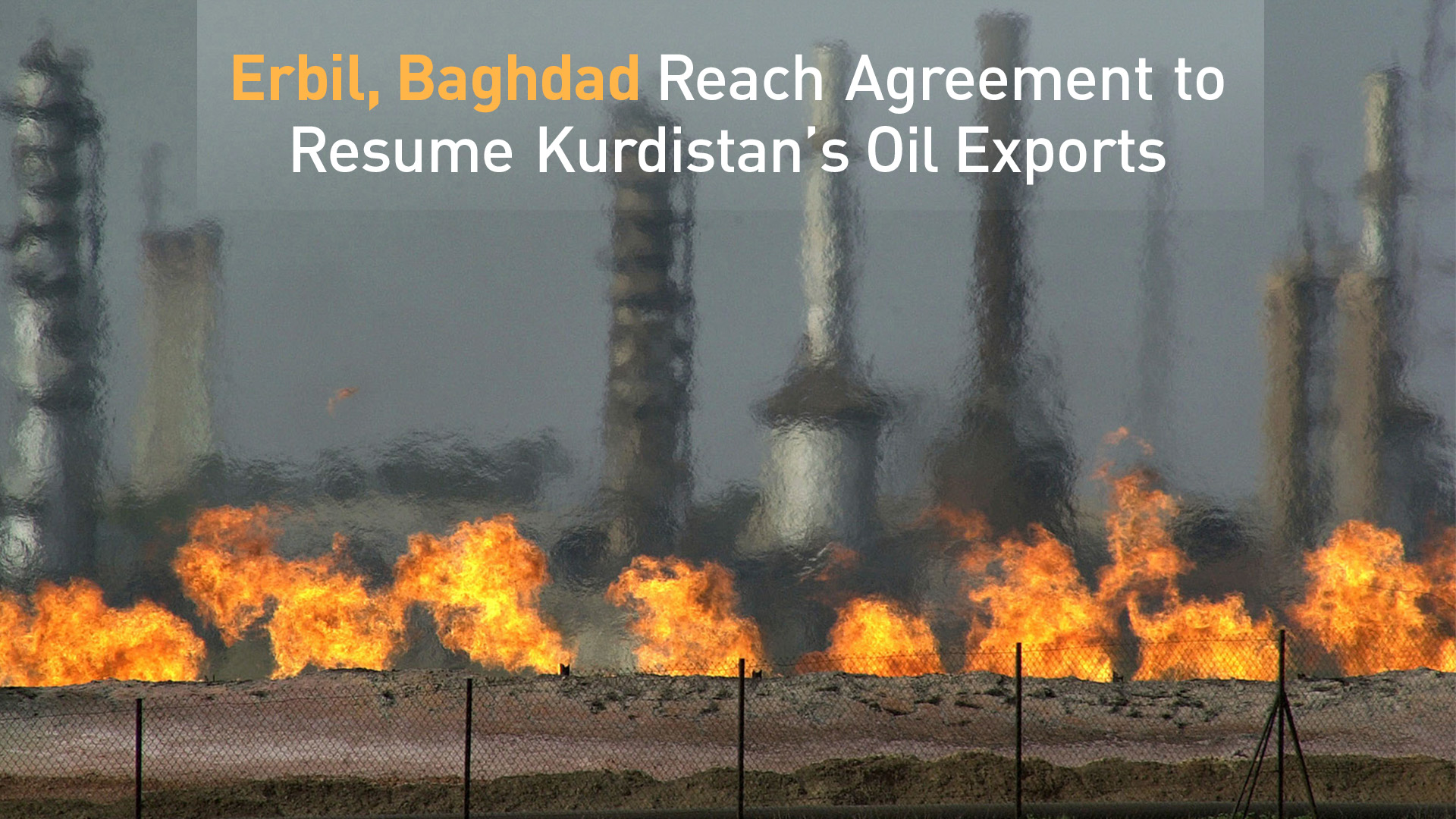Erbil, Baghdad Reach Agreement to Resume Kurdistan’s Oil Exports
According to the statement, oil exports will resume in accordance with available quantities, ensuring a gradual return to international markets.

ERBIL (Kurdistan24) – In a significant breakthrough, Erbil and Baghdad have reached an agreement to resume the Kurdistan Region’s oil exports, marking a step toward resolving a longstanding economic and political dispute.
As part of the agreement, a joint technical committee has been formed to inspect and assess Kurdistan’s oil export pipelines.
The Kurdistan Regional Government’s (KRG) negotiating delegation announced the agreement on Sunday, emphasizing that it was reached following extensive communications and coordination between the Iraqi Federal Oil Ministry and the Kurdistan Region’s Ministry of Natural Resources (MoNR).
According to the statement, oil exports will resume in accordance with available quantities, ensuring a gradual return to international markets.
To facilitate this process, a joint technical team was established on Sunday to conduct inspections on Kurdistan’s oil export pipelines. This step is aimed at ensuring the smooth and efficient flow of oil exports, which have been suspended for nearly two years.
“In this regard, we reaffirm our commitment to implementing the provisions of the federal general budget law,” the KRG delegation stated, signaling a commitment to the legal and regulatory framework governing oil revenues and resource management in Iraq.
The agreement follows an announcement by the Iraqi Oil Ministry on Saturday stating that all necessary procedures for resuming Kurdistan’s oil exports via Turkey’s Ceyhan port have been completed.
Read More: Iraq and Kurdistan Region Finalize Mechanism to Resume Oil Exports
This development paves the way for Kurdistan’s crude oil to re-enter international markets, stabilizing the region’s energy sector and restoring a crucial revenue stream for both Erbil and Baghdad.
The halt in Kurdistan’s oil exports, which lasted nearly two years, has had profound economic ramifications, resulting in an estimated $26 billion in losses for both Iraq and the Kurdistan Region.
The prolonged suspension also disrupted global energy markets, exacerbating supply chain challenges and economic uncertainty.
Reports by Reuters, citing eight different sources, previously suggested that the Trump administration had urged Iraq to expedite the resumption of Kurdistan’s oil exports, highlighting the geopolitical and economic significance of Kurdish crude in the broader energy landscape.
As Erbil and Baghdad move forward with the technical implementation of this agreement, attention will be focused on ensuring transparency and efficiency in oil export operations.
The resumption of exports is expected to provide much-needed financial relief to the Kurdistan Region while also strengthening the broader economic ties between the federal and regional governments.
